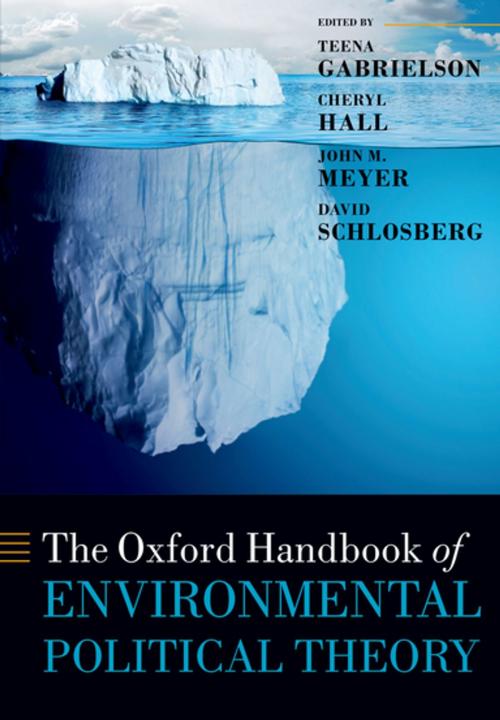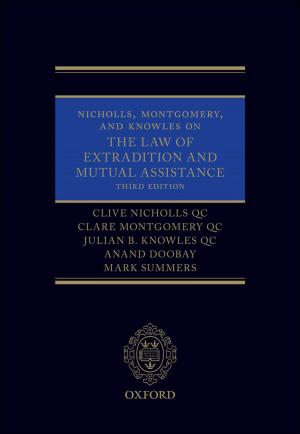The Oxford Handbook of Environmental Political Theory
Nonfiction, Social & Cultural Studies, Political Science, Politics, History & Theory, Science & Nature, Nature| Author: | ISBN: | 9780191508424 | |
| Publisher: | OUP Oxford | Publication: | January 7, 2016 |
| Imprint: | OUP Oxford | Language: | English |
| Author: | |
| ISBN: | 9780191508424 |
| Publisher: | OUP Oxford |
| Publication: | January 7, 2016 |
| Imprint: | OUP Oxford |
| Language: | English |
Set at the intersection of political theory and environmental politics, yet with broad engagement across the environmental social sciences and humanities, The Oxford Handbook of Environmental Political Theory, defines, illustrates, and challenges the field of environmental political theory (EPT). Featuring contributions from distinguished political scientists working in this field, this volume addresses canonical theorists and contemporary environmental problems with a diversity of theoretical approaches. The initial volume focuses on EPT as a field of inquiry, engaging both traditions of political thought and the academy. In the second section, the handbook explores conceptualizations of nature and the environment, as well as the nature of political subjects, communities, and boundaries within our environments. A third section addresses the values that motivate environmental theorists—including justice, responsibility, rights, limits, and flourishing—and the potential conflicts that can emerge within, between, and against these ideals. The final section examines the primary structures that constrain or enable the achievement of environmental ends, as well as theorizations of environmental movements, citizenship, and the potential for on-going environmental action and change.
Set at the intersection of political theory and environmental politics, yet with broad engagement across the environmental social sciences and humanities, The Oxford Handbook of Environmental Political Theory, defines, illustrates, and challenges the field of environmental political theory (EPT). Featuring contributions from distinguished political scientists working in this field, this volume addresses canonical theorists and contemporary environmental problems with a diversity of theoretical approaches. The initial volume focuses on EPT as a field of inquiry, engaging both traditions of political thought and the academy. In the second section, the handbook explores conceptualizations of nature and the environment, as well as the nature of political subjects, communities, and boundaries within our environments. A third section addresses the values that motivate environmental theorists—including justice, responsibility, rights, limits, and flourishing—and the potential conflicts that can emerge within, between, and against these ideals. The final section examines the primary structures that constrain or enable the achievement of environmental ends, as well as theorizations of environmental movements, citizenship, and the potential for on-going environmental action and change.















